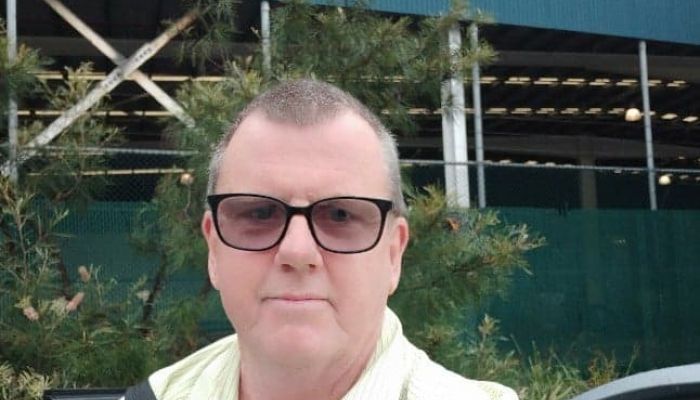From a bad dream to a new life
9 April 2022

Francis’ childhood was filled with fear and trauma, which flowed into years of crime and addiction. At the height of his addiction – exhausted and emaciated – he cried a desperate prayer for help. From there, his life began to change.
Words Francis
As a scraggy, long-haired, skinny, addicted dude with no teeth, Iwas picked up by a truck driver while Iwas hitchhiking. Iwas desperate to change my life and just about at the end of my tether.
Ididn’t tell the driver too much of my story, but it was kind of obvious. When we started talking, he mentioned a few options. “You know there’s The Salvation Army,” he commented.
CHILDHOOD CHALLENGES
One of 11 children, my earliest memories are overwhelmingly painful. My father was a boilermaker, and he also liked to drink.
Trouble seemed to follow him around, and we were always on the move.
Idon’t recall a day when there wasn’t tension. There were continual arguments about everything, and Iwas in fear all the time.
Iworked hard at part-time jobs from the age of 13, but that work increasingly included crime. The only influence Ihad was sporadic visits from older brothers who taught me how to steal, lie, cheat, and get away with it. My teen years were largely spent in institutions and reform schools around Sydney.
By the age of 19, Iwas sentenced to prison for armed robbery committed with an older brother. At the time, Ithought, “There’s got to be a better way. There has to be something better than this,” but Ijust didn’t know how to get out of it.
A DESPERATE PRAYER
I got married soon after leaving prison, but it was doomed to failure because I was such a mess. I began using heroin and had violent outbursts, repeating much of the behaviour I’d seen in my father. Ordered by the courts out of Sydney, I stayed with a friend outside Byron Bay.
It got to the point where I’d just had enough. I said, “God, help me. I’m going to start hitchhiking, and if I get a lift into Byron, I’ll go searching for money and drugs. But if my lift takes me beyond Byron, I’ll go to Brisbane and get help. I’ll do whatever it takes.”
The driver who picked me up turned out to be a Christian, and he dropped me off near The Salvation Army’s Pindari homelessness service [in Brisbane]. The next morning, weak, sick, and desperately thin, I was driven to The Salvation Army’s Brisbane Recovery Services, known as Moonyah, and began a hard but life-changing journey.
MOVING FORWARD IN FAITH
Eventually, I began to find hope. I started volunteering on the reception desk at Moonyah. As my confidence grew, Itook on more volunteer roles then trained in disability support.
Today Iwork in disability support and also help young people from challenging backgrounds transition from school into the workforce. Ihave volunteered for a number of years with the Salvos and other organisations.
Looking back, my chaotic and fear-filled childhood and life of crime, addiction, and imprisonment is like a distant dream. Istill struggle with anxiety, but the simple life Inow live is a world away from the addiction that threatened to destroy me.
Ihave now remarried, and life is completely different. It sounds clichéd, but it is nothing like Icould have ever imagined. Often when Ilook back, it feels like a bad dream, like it was someone else.
EASTER HOPE
When Ibecame homeless and alone for the best part of a decade, Christmas and Easter were so painful. The stores were closed, the streets were silent, and for me, there was a sense of feeling more alone than ever.
Easter holds far more significance for me now. It’s a time to reflect and appreciate the gifts Ihave – the people in my life, the interactions, the joy of seeing someone’s life transformed, gratitude for the life I’ve been blessed with, and faith.
At times, Istruggle to forgive myself, but at Easter-time, Icount my blessings. Irealise that forgiveness is real, and the message of Jesus’ sacrifice to save others is active and alive today. If they weren’t, I wouldn’t be here telling my story.

Comments
No comments yet - be the first.